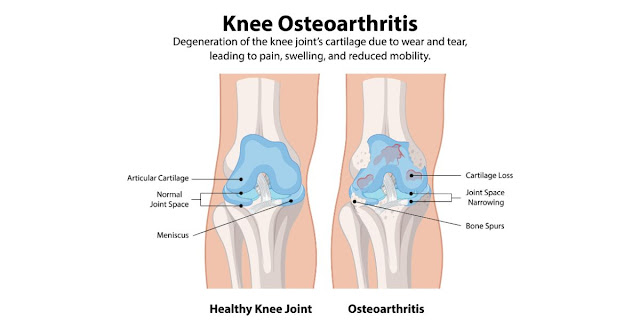Understanding Brain Tumors: Symptoms and Treatments
Hearing the term “brain tumor” often instills a sense of fear in people. Once considered a harbinger of death, the treatment of brain tumors has now become highly effective, safe, and largely painless due to advanced technologies such as radiosurgery, chemotherapy, radiation therapy, and computer-guided stereotactic brain surgery, as well as robotic surgery. The earlier the diagnosis of a brain tumor, the easier the treatment becomes.
Brain Tumors Can Be Dangerous
Generally, any abnormal growth within the brain is considered dangerous, and the same applies to brain tumors. There are several types of brain tumors, but they are mainly classified into two categories based on their cancerous nature: malignant (cancerous) and benign (non-cancerous) tumors. People between the ages of 20 and 40 are more likely to have benign tumors, whereas those over 50 are more prone to malignant ones. Benign tumors grow more slowly compared to cancerous tumors.
Read More: It’s Important to Understand the Difference Between a Neurosurgeon and a Neurologist
Symptoms of Brain Tumors
The symptoms of brain tumors are usually directly related to where the tumor is located within the brain. For example, a tumor in the back of the brain may cause vision problems, while one in the outer region may lead to difficulties in speech. As the tumor grows, it can increase pressure on the brain, causing headaches, nausea, vomiting, vision issues, difficulty walking, or speaking problems.
Other Symptoms of Brain Tumors
- Headaches: One of the early signs of a brain tumor is a persistent headache. It often starts as soon as you wake up in the morning and gradually subsides throughout the day. Bending or exercising can make the headache worse.
- Mental and Personality Changes: Tumor patients may experience behavioral and personality changes. They might struggle with speech and face memory issues.
- Mass Effect: This occurs when increased intracranial pressure causes symptoms such as vomiting, nausea, dizziness, vision problems, blurred vision, and swelling in the optic nerves. These symptoms are common in young children, elderly individuals, and those with slowly growing tumors.
- Focal Symptoms: These include hearing loss, ringing in the ears, weakness, pain when speaking or walking, decreased muscle control, double vision, and reduced sensation.
Read More: Spinal Cord Compression – Prevent It Before Symptoms Appear, Don’t Take Back Pain Lightly
Causes of Brain Tumors
In some cases, a tumor can cause fluid accumulation in the brain, a condition known as hydrocephalus. This can be dangerous for the patient. Diagnosing a brain tumor can be challenging because its symptoms may resemble those of other conditions. These symptoms can also be caused by substance use, medications, or alcohol. However, when these symptoms become severe, they could be indicative of a brain tumor. While the exact cause of brain tumors remains unknown, genetic links are currently being studied.
Read More: Do Not Ignore the Symptoms of Menorrhagia
Treatment for Brain Tumors
The treatment for brain tumors depends on the type, location, and size of the tumor. If surgery is considered safe, it is usually the first option to remove the tumor as much as possible. The surgery is performed using endoscopy, and if complete removal isn’t feasible, a stereotactic biopsy may be performed. After surgery, radiation therapy or chemotherapy may be used to eliminate any remaining tumor cells. In many cases, no postoperative treatment is required, though some tumors may necessitate additional care.
Read More: Treat Gallstones Without Delay
Meet the Best Neurosurgeons in Delhi NCR
- Dr. (Brig.) Yadvendra Singh Sirohi is a highly experienced neurologist with over 33 years of expertise. He has worked at top national institutions and is currently a Senior Consultant in Neurology at Yashoda Hospital & Research Centre, Nehru Nagar, Ghaziabad.
- Dr. Puneet Malik is one of the best neurosurgeons in Delhi with more than 10 years of experience in neurosurgery. Currently, he serves as a Consultant Neurosurgeon at Yashoda Hospital & Research Centre, Ghaziabad, specializing in complex brain and spine surgeries. He excels in treating patients with recurring headaches, neck and back pain, seizures, blurred vision, paralysis, and more.
- Dr. Shishir Kumar is one of the leading neurosurgeons, neuro-interventionists, and endoscopic spine surgeons in Delhi NCR, with over 9 years of experience. He completed his post-doctoral fellowship in Neuro-interventional and Endovascular Surgery from the Institute of Neurosciences, Kolkata, and minimally invasive spine surgery training from Seoul, South Korea.
- Dr. Atul Gupta is a Senior Neurosurgeon at Yashoda Hospital & Research Centre with 29 years of experience in the field. He has earned his medical degrees, including an M.Ch. in Neurosurgery, from the prestigious King George Medical College, Lucknow.
- Dr. Neeraj Aggarwal is a neurologist with over 20 years of experience, including 12 years in neurology. He has trained under renowned professors and specializes in the treatment of stroke, headaches, Parkinson’s disease, and memory loss.
- Dr. Rakesh Kumar is a neurologist at Yashoda Hospital, Ghaziabad, with over 14 years of experience in the medical field. He is a member of the Indian Academy of Neurology and specializes in treating stroke, dementia, and cerebrovascular disorders.




Comments
Post a Comment